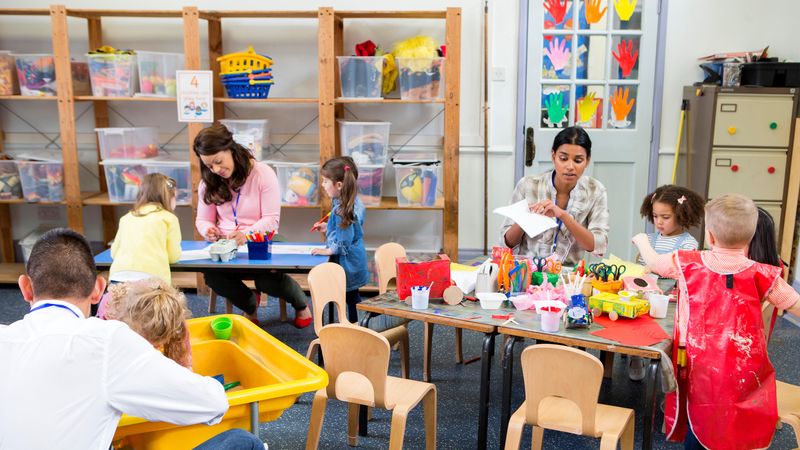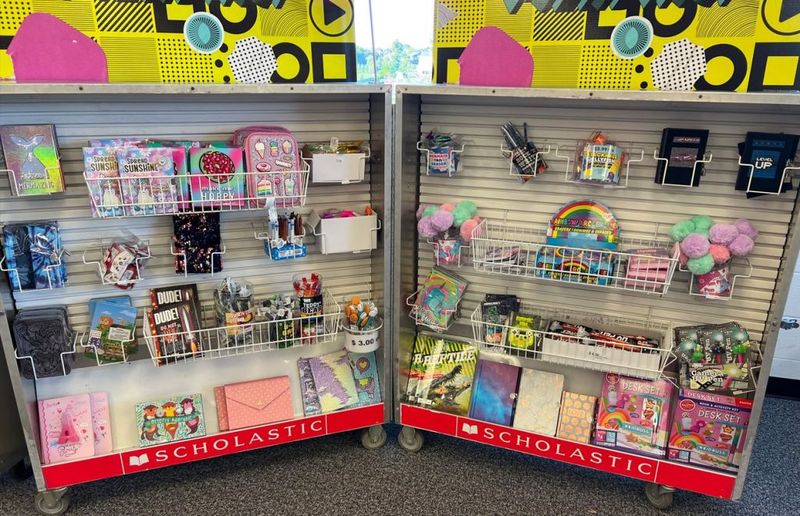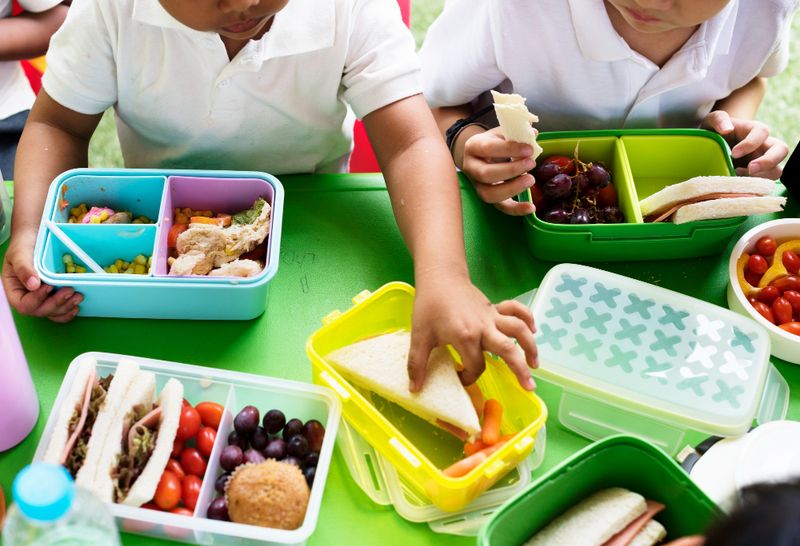19 School Activities That Parents Are Now Saying No To
There was a time when parents just nodded, signed the permission slip, and packed the extra snacks. But these days? Parents are speaking up — and saying “No, thanks” to school activities that feel outdated, over-the-top, or just plain unnecessary.
Whether it’s burnout, better boundaries, or the collective realization that not everything is worth the chaos, modern parents are becoming more selective about what deserves their time, energy, and resources.
From elaborate Pinterest-worthy projects to fundraisers that feel like part-time jobs, moms and dads everywhere are drawing lines in the sand. Here are 19 school activities parents are finally opting out of — and honestly? We get it.
1. Spirit Week Fashion Marathons

Remember when school spirit meant wearing the school colors on Friday? Now it’s five days of increasingly specific themes that require a costume designer’s touch. Monday is decades day, Tuesday needs neon everything, Wednesday demands pajamas (but not the ones they actually sleep in), Thursday is book character day, and Friday requires head-to-toe school colors.
Parents are quietly rebelling against the 10 p.m. scramble to create a “Disco Thursday” outfit that somehow needs to be school-appropriate yet authentic. The mental load of remembering which day requires crazy socks versus superhero capes is becoming too much.
Many families are now picking one or two days to participate rather than stressing over all five. Some schools are listening, simplifying themes or scheduling them less frequently. The spirit of Spirit Week lives on – just with less parental panic and fewer last-minute Amazon orders.
2. Product-Pushing Fundraisers

The glossy catalog arrives home with your second-grader, filled with $20 wrapping paper and chocolate that costs triple the grocery store price. Your child bubbles with excitement about winning a plastic toy if they sell 50 items. Meanwhile, you’re calculating how much of your own money you’ll spend buying overpriced popcorn to avoid the awkwardness of door-to-door sales.
Parents are increasingly questioning these fundraisers where kids do minimal work while adults shoulder the real burden. The math often doesn’t add up – schools typically receive just 40-50% of sales while families pressure relatives and coworkers to buy things nobody really needs.
More parents now prefer direct donations where 100% benefits the school. Many appreciate transparent fundraising that explains exactly what the money funds. Schools finding success with new approaches focus on community-building events or student-centered activities rather than turning families into reluctant sales teams.
3. The Volunteer-For-Everything Expectation

The signup genius arrives in your inbox with 47 slots needing parent volunteers. Field trip chaperones, library helpers, class party coordinators, bulletin board decorators, copy room assistants, and lunchroom monitors. The unspoken expectation? Good parents show up for everything.
Modern parents are pushing back against volunteer burnout. Between careers, multiple children, and their own basic needs, the pressure to appear at every school function has become unsustainable. Many schools still operate on outdated models assuming a stay-at-home parent is available during school hours.
Parents now set boundaries by choosing one meaningful way to contribute rather than spreading themselves thin. Schools with successful volunteer programs offer flexible options including weekend or evening opportunities, remote tasks, or one-time commitments.
4. Adult-Level Science Projects

The assignment seems innocent enough: create a model of the solar system. Yet somehow this translates to parents staying up until midnight, covered in glitter glue, wondering how a fourth-grade project requires power tools and an engineering degree. The finished products at science fairs reveal the truth – these aren’t kid projects anymore.
Parents are questioning assignments clearly designed beyond children’s abilities. The robotic arm with functioning hydraulics? The working volcano that synchronizes with a tablet app? The meticulously scaled ecosystem diorama? All showcase parental skills more than student learning.
Parents appreciate teachers who explicitly state that imperfect, kid-created work is the goal, and who provide class time for project completion rather than assuming families have unlimited evening and weekend hours for school assignments.
5. Restaurant Fundraiser Nights

The flyer comes home promising a fun evening where 10% of your dinner bill supports the school. Sounds simple enough – until you arrive at the mediocre chain restaurant to find half the school crammed into the waiting area, overwhelmed servers, and a two-hour wait for food that nobody really wanted in the first place.
After spending $75 on a family meal at a restaurant you’d never normally choose, the school earns maybe $7.50. Many parents now question the value of these events, especially when multiple classes and clubs host them throughout the year.
Families increasingly prefer fundraisers offering better returns on their time and money. Some schools find success with restaurant partnerships that offer higher percentages or flat donations rather than percentage-based giving. Others move toward community-building events at school where socialization happens in a less chaotic environment.
6. Pinterest-Perfect Class Parties

Once upon a time, class parties meant store-bought cupcakes and paper cups of juice. Now they’ve morphed into themed extravaganzas with custom decorations, elaborately packaged treats, personalized crafts, and coordinated games – all documented for social media. The Halloween party needs individually packaged themed snacks. The Valentine’s celebration requires Pinterest-worthy treat boxes.
Parents are quietly rebelling against the competitive nature these events have taken on. The pressure to outdo last year’s room parent or match what’s happening in other classrooms creates unnecessary stress and expense.
Many teachers actually prefer simpler celebrations that create less classroom chaos. The focus returns to what really matters: kids enjoying a break from routine with classmates, not creating Instagram-worthy moments that leave parents exhausted and wallets empty.
7. Family Homework Projects

The assignment seems innocent enough – until you read the fine print requiring family participation, specialized materials, and several evenings of work. Suddenly your kitchen table is commandeered for a family heritage diorama, community helper interview project, or cardboard architectural model that somehow requires your expertise and supervision.
Parents increasingly question assignments clearly designed for adult involvement rather than independent student work. Between multiple children, work commitments, and basic household management, finding hours for elaborate family projects creates unnecessary stress. Many families also note the inequity – students with limited parent availability or resources can’t produce the same results.
Schools responding to these concerns are rethinking homework philosophy entirely. They’re distinguishing between meaningful family engagement and projects that simply outsource teaching to parents. Many now limit family projects to once yearly or make them entirely optional.
8. Commercialized Book Fairs

Book fair week arrives with colorful posters and classroom preview days that build enormous excitement. Your child returns home with a wish list featuring $75 worth of items – mostly toys, posters, and novelty erasers. The actual books? Secondary to the merchandise surrounding them.
Parents increasingly question whether these events truly promote reading or just consumerism. Many note the high prices compared to bookstores or online retailers, and the emphasis on character merchandise rather than literature. The pressure children feel when classmates purchase items while they cannot adds another layer of concern.
Schools finding better approaches focus on the reading experience rather than sales targets. Some arrange with vendors to feature only books, not toys. Others supplement with used book exchanges or community library events.
9. Overnight Field Trip Chaperoning

The email arrives seeking parent volunteers for the fifth-grade overnight trip. Three days of supervising energetic tweens, sleeping on gym floors, and managing homesickness, medication schedules, and inevitable drama. All while using precious vacation days from your actual job.
Many parents now evaluate whether chaperoning provides quality time with their child or just adds stress to both lives. The reality often involves little sleep, constant responsibility, and a child who’s either embarrassed by your presence or expects special treatment. For working parents, using limited time off for exhausting volunteer duty rather than actual family vacation creates additional tension.
Some schools create shorter volunteer shifts during extended trips or find other meaningful ways for parents to contribute. Most importantly, they acknowledge that declining chaperone duty doesn’t reflect parental commitment – it simply recognizes personal and professional boundaries.
10. Digital Platform Overload

Monday’s homework is on Google Classroom. Tuesday’s spelling list is in ClassDojo. Wednesday’s permission slip needs signing in ParentSquare. Thursday’s lunch account needs funding through SchoolBucks. Friday’s reading log must be submitted via Seesaw. And somehow you’re expected to check grades daily on yet another system.
Parents are drowning in digital platforms, each requiring separate logins, notifications, and learning curves. The mental load of tracking multiple children across multiple apps creates unnecessary stress, especially when information isn’t consistently posted across systems.
The most effective approach? Teachers within the same school using the same systems rather than individual preferences. Parents appreciate clear explanations of which platform serves what purpose, regular posting schedules, and understanding that not everyone can check multiple apps daily.
11. Last-Minute Performance Costumes

The note arrives in the backpack on Monday: “For Thursday’s performance, your child needs to dress as a pioneer/rainforest animal/historical figure/vegetable.” Suddenly you’re expected to produce a costume worthy of Broadway with materials you definitely don’t have on hand and skills you never claimed to possess.
Parents increasingly push back against unreasonable costume expectations, especially with minimal notice. The assumption that families have unlimited time, money, and creative resources to produce specialized outfits creates unnecessary stress and highlights socioeconomic differences among students.
Schools with thoughtful approaches provide considerable advance notice, suggest simple modifications to regular clothes, or even better – supply costume elements themselves. Some maintain costume collections students can borrow from or organize parent volunteer groups for those who enjoy creating costumes.
12. Restrictive Snack Requirements

The class snack policy arrives listing all prohibited items: nothing with nuts, dairy, gluten, eggs, or sugar. Must be store-bought with ingredient labels. Individually wrapped. Healthy. Mess-free. And somehow still appealing to 7-year-olds. You stand frozen in the grocery aisle, frantically googling whether fruit leather meets all criteria.
While parents universally support keeping children with allergies safe, many find increasingly restrictive snack policies challenging to navigate. The requirements often eliminate most affordable options, creating financial strain for families on tight budgets. Finding items meeting all criteria becomes a time-consuming scavenger hunt.
Some schools provide specific approved snack lists rather than endless restrictions. Others implement classroom snack sharing systems where parents contribute to a communal supply on a rotating basis. The most appreciated policies acknowledge both student safety and family reality – supporting health without creating undue hardship.
13. Endless School Photo Packages

School picture season arrives with a bewildering array of packages, backgrounds, and retouching options. You’re suddenly expected to decide whether your third-grader needs the deluxe package with 24 wallet-sized photos, a calendar, and personalized coffee mug – all at premium prices that would make professional photographers blush.
Parents increasingly question the value of elaborate photo packages when most images are shared digitally anyway. Many find the pricing structure confusing and the pressure tactics uncomfortable. The retake cycle creates additional hassle, often requiring parents to rearrange work schedules for a slightly different version of the same forced smile.
Parents appreciate schools that limit retakes to cases of closed eyes or technical issues rather than subjective aesthetic preferences. The focus shifts from maximizing photo company profits to providing reasonable family keepsakes.
14. Class-Specific Chat Groups

Your phone buzzes constantly with messages from the first-grade room parent group, the Tuesday soccer carpool chat, the PTA committee text chain, and the grade-level parent Facebook group. Most messages don’t apply to you, but missing the one relevant announcement means your kid shows up without the water bottle/permission slip/crazy sock for spirit day.
Parents increasingly resist the expectation to monitor multiple communication channels for each child. The constant notifications create digital noise that makes important information harder to catch. Many find themselves in duplicate groups sharing similar information in different formats.
Schools with effective communication consolidate messages through official channels rather than relying on parent-created groups. When chat groups are necessary, clear guidelines about appropriate content and posting times help manage notification fatigue.
15. Elaborate Valentine Exchange Requirements

The Valentine’s Day note comes home: each child needs cards for 23 classmates plus a decorated box to collect them. But not just any box – previous years featured cardboard masterpieces resembling spaceships, working gumball machines, and light-up castles. Suddenly February 14th requires engineering skills, specialty craft supplies, and hours you don’t have.
Parents increasingly question whether Valentine exchanges have evolved from simple card sharing to unnecessary competitions. Creating elaborate collection boxes or personalized Valentines for entire classrooms adds significant time and financial pressure during an already busy season.
Parents appreciate teachers who explicitly state that simple, child-created Valentines are encouraged and that store-bought cards are perfectly acceptable alternatives to handcrafted versions.
16. Constant Classroom Supply Requests

You dutifully purchased every item on the school supply list in August, including the specific brand of markers, the exact folder colors, and those peculiar erasers only available at one store across town. Now it’s October, and another note requests more tissues, hand sanitizer, and dry erase markers – items you already sent in six weeks ago.
Parents increasingly question where the initial supplies disappeared to and why replenishment falls to families rather than school budgets. Many find themselves purchasing the same items multiple times throughout the year with little explanation of what happened to the original supplies.
Some schools create rotating supply schedules where different families contribute throughout the year rather than everyone sending duplicates simultaneously. Parents appreciate teachers who acknowledge the financial impact of repeated requests and who clearly distinguish between essential needs and optional enhancements.
17. Participation Trophy Overload

The end-of-season ceremony stretches to 90 minutes as each child receives awards for “Most Enthusiastic Benchwarmer,” “Best Effort While Tying Shoes,” and “Most Improved at Showing Up.” Your child’s shelf already groans under the weight of plastic trophies recognizing minimal achievements, most melting slightly from summer heat.
Parents increasingly question whether recognizing every possible action actually helps children develop realistic self-assessment. Many note that kids quickly discern the difference between meaningful recognition and obligatory acknowledgment. The financial and environmental impact of disposable trophies adds another layer of concern.
Schools finding better balance focus on specific, meaningful feedback rather than generic praise. Some replace individual trophies with team celebrations or experiential rewards. Others emphasize progress toward personal goals rather than comparing children against each other.
18. Competitive Parent Field Day Teams

The field day announcement includes a surprise element: parents are expected to form teams and compete alongside students. Suddenly you’re signed up for the three-legged race with another mom you barely know, while the dads prepare for the water balloon toss with alarming intensity. What should be a fun day watching kids play becomes an unexpected athletic competition among adults.
Parents increasingly resist activities that force their participation rather than allowing them to support from the sidelines. Many find the competitive nature among adults overshadows the children’s experience. For those with physical limitations or work constraints, mandatory parent games create unnecessary barriers to attendance.
Parents appreciate field days focused primarily on student enjoyment with thoughtful consideration of diverse family situations. The goal shifts from manufacturing parent-child activities to creating enjoyable experiences that accommodate various comfort levels and abilities.
19. Mid-Workday School Events

The invitation arrives for your child’s special presentation – Tuesday at 10:30 AM. The Thanksgiving feast? Thursday at 11:15. The winter concert? 2:00 on a Wednesday. Somehow schools still schedule their most important moments when working parents are least available to attend.
Parents increasingly push back against the assumption that someone can always leave work midday for school events. The emotional impact on children whose parents cannot attend creates unnecessary stress. For hourly workers without paid time off, choosing between income and school presence becomes particularly painful.
Some schools schedule duplicate performances – one during school hours, another in evening. Others rotate timing throughout the year so the same parents aren’t always excluded. Video recording options and livestreaming help bridge the gap when schedule changes aren’t possible.
20. Excessive Standardized Test Prep

The test prep packets start arriving months before actual testing. Suddenly homework doubles, practice tests appear weekly, and special review sessions replace art and music. Your child’s anxiety rises as teachers emphasize how these scores impact the school’s rating and funding.
Parents increasingly question whether extensive test preparation actually improves learning or just creates stress. Many note their children developing physical symptoms – headaches, stomach troubles, sleep disturbances – directly related to test pressure. The narrowing of curriculum to focus on tested subjects concerns those valuing well-rounded education.
Parents appreciate teachers who frame standardized tests as just one measurement tool rather than high-stakes events determining student worth. Most importantly, schools recognizing that family support takes many forms beyond drilling test questions help reduce pressure on both children and parents.







